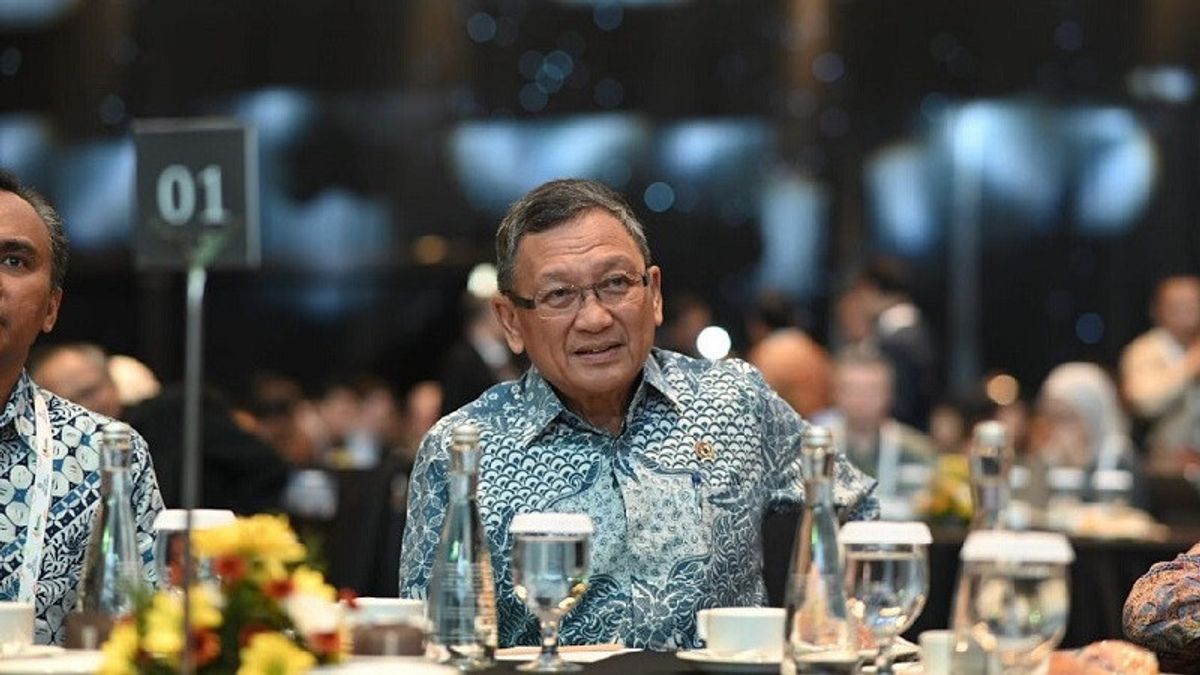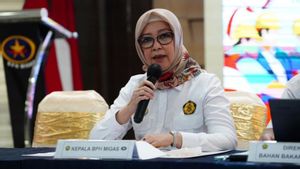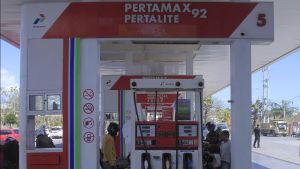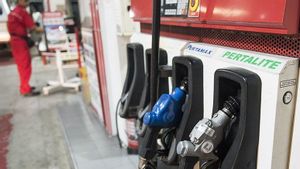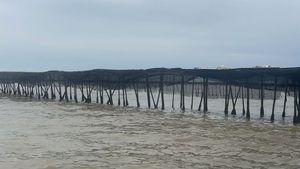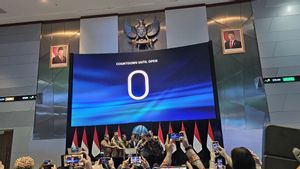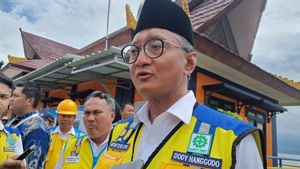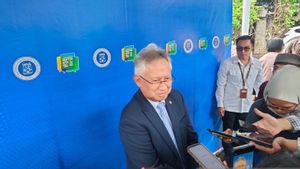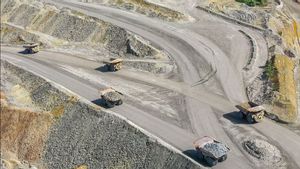JAKARTA - Minister of Energy and Mineral Resources (ESDM) Arifin Tasrif revealed, increasing the added value of minerals through downstreaming, which is currently being carried out by Indonesia, has an important role in supporting energy transitions.
"The increase in the added value of minerals has an important role in supporting the energy transition in Indonesia, among others, being used as raw material for solar, wind and nuclear power plants; transmission and distribution cables; as well as batteries for electric vehicles and EBT power plants," said Arifin, quoted Wednesday, October 11.
He said that Indonesia has enormous mineral and coal potential (minerba) and plays an important role in economic growth, as well as national industrial independence and resilience.
The current government, continued Arifin, is prioritizing several mineral and coal policies, including an increase in the exploration of mineral reserves, including the potential for rare earth metals and critical minerals. In addition, reclamation and post-mining, certainty of business and ease of investment, increasing the Domestic Component Level (TKDN), and increasing added value by paying attention to environmental aspects.
Arifin also conveyed a downstream strategy that is being encouraged by the Government. Among them is through efforts to accelerate the integration of supply chains between mines and smelters.
"Then the integration of the industry using mineral processed materials and the development of advanced industries, and the applicative results of mineral processing or refining. Some of the main commodities that are prioritized for development include Nickel, Alumunium, Copper, Tin, Iron, and Gold-Silver," added Arifin.
On that occasion, Arifin also said that mining would also be asked to produce low products or no emissions.
"While we still depend on fossils, especially coal. It must be a thought on how gradually we can divert from heavy emissions to low emissions until finally zero emissions," continued Arifin.
Arifin further added that mining mining activities need to pay attention to the principles of Environmental, Social, and Governance (ESG). Where the environmental principle is implemented through environmental management and monitoring; post-mining reclamation; the transformation of former mining land into other energy sources (PLTS, bioenergy) and encouraging the use of renewable energy in mining production activities.
SEE ALSO:
"Furthermore, social principles are implemented through Community Development and Empowerment programs, prioritizing local mining service companies, local contractors and local workers. Governance principles are carried out through the regulation of IUP holders, share ownership and organizational structure," said Arifin.
In addition, the Government also continues to improve mining business activities for mineral and coal which are carried out through national mining governance, taking sides with national interests, legal certainty and ease of investing, environmental management, and law enforcement.
"With the huge potential of minerals and coal, and the availability of wide open market opportunities, as well as policy certainty and regulations, the Government encourages business actors to be able to invest in mineral and coal downstreaming," concluded Arifin.
The English, Chinese, Japanese, Arabic, and French versions are automatically generated by the AI. So there may still be inaccuracies in translating, please always see Indonesian as our main language. (system supported by DigitalSiber.id)
